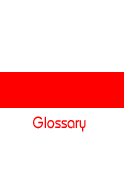






The Basics on Health Care Reform for Individual Artists and Arts Businesses
(updated 12/14/17)
History of our state's health care reform: In April 2006, a piece of sweeping bipartisan supported Health Care Reform Legislation (known as Chapter 58 of the Acts of 2006) became law. This law has changed health care in Massachusetts and beyond. The key goal of this law was to move closer to universal coverage in this state by reducing the overall number of the uninsured in Massachusetts (which is estimated at 10 percent of the population). The responsibility for paying for the implementation of this new law has been spread to many sectors- individuals, employers, and the state government.
The law created a new independent State agency called the Commonwealth Health Insurance Connector Authority (the Connector). This organization is charged with implementation of the law and for creating the policies, programs, and regulations to make this law a reality. The Connector is also charged to set the standards that define what "creditable and affordable" health insurance coverage is for the State. This is also referred to as Minimum Creditable Coverage or MCC (in other words health insurance products purchased by individuals who are state residents will have to meet the MCC standards set by the Connector).
The Connector's mission, as stated on their web site is: "Promoting health care coverage across the Commonwealth ...The Connector serves as a bridge between eligible individuals, small employers, and health plans to promote affordable private health insurance to uninsured residents of Massachusetts. The Connector is overseen by a board of ten directors. Six directors represent diverse types of expertise and interests from the private sector, three of whom are appointed by the Governor and three by the Attorney General. It is managed by an Executive Director who reports to the Board of Directors.
One key component of this law is the "individual mandate." Massachusetts residents age 18 and older are required to have health insurance that is deemed affordable to them at their income level or they risk being fiscally penalized on their personal income taxes.
National healthcare reform history: It is important to be aware in 2010, the Federal Government passed what is known as the Affordable Care Act (the ACA or Obama Care). This law is modeled on our State's Heatlh Care Reform law (people can't be excluded from coverage for a pre-existing condition, children can stay on their parents insurance until age 26, etc) and its keeps many of the requirements MA has (individual mandate, etc).
One key improvement of the ACA was that Modified Adjusted Gross Income (MAGI) is now the measure used to see if individuals are eligible for subsidies/tax credits to pay for their insurance. This is very helpful for those who are self-employed or have 1099 income. To learn what MAGI is: http://laborcenter.berkeley.edu/pdf/2013/MAGI_summary13.pdf
Those whose income is not solely from W-2 income sources with regular pay stubs (ie those who are self-employed, seasonal workers, don't have regular pay stubs, and/or have combination income sources (W-2 income, 1099 income, etc.), should contact an enrollment specialist in person to determine what their income is. (Contact Health Care for All's Help line or an enrollment specialist at a community health center, hospital, or at a health care advocacy organization).
The Connector website is a key market place for one to buy health insurance (subsidized or not subsized). It is the only site to be able to buy subsidized/tax credit supported health plans (again if you have hard to determing income work with an enrollment specialist to see if you qualify for help paying for your health insurance). Note you can buy unsubsized Health Plans directly from the insurance carriers, through brokers and not through the Connector (but make sure the plans you buy meet Massachusetts' requirements).
*PLEASE be aware that the rules for when someone can purchase insurances as an individual on the private market has drastically changed. There is now an annual open enrollment period and if you miss that enrollement period and you do not have what is called a "qualifying event"- you can't buy insurance! More on this in the issue on this page and what you an do: Private Insurance Rules.*
To contact the Connector- Information and enrollment material is available online at www.MAhealthconnector.org or by calling the Health Connector's customer service center weekdays at 1-877-MA-ENROLL.
IMPORTANT INFORMATION
Given the uncertainty with the Trump administration's support of the ACA, we strongly recommend that artists who have hard to determine income DO NOT enroll or sign up for any program/health insurance plan via the Connector's website or phone lines. Only use the Connector as a way to research your options. This is very important. It is best if you talk to a seasoned enrollment specialist from Health Care for All's FREE Helpline (1-800-272-4232) or enroll through an health care advocate at a health center, health agency or hospital to see if you are first eligible for a subsidized health plan and if you find out that you are not eligible THEN use the Connector to enroll in a non subsidized health plan. It is important to be able to have an enrollment specialist to be able to advocate on your behalf or with you if something does not go smoothly with your enrollment.
The information on this site is intended only for educational purposes and is not meant to be legal and/or tax advice. All information on this site may be reproduced for educational purposes with permission from Healthcare for Artists. No permission is needed for it to be downloaded/printed out for individual use. If you have questions after reviewing the information provided on this site, it is best to call an enrollment specialist or a staff person at a designated state agency or advocacy organization.





